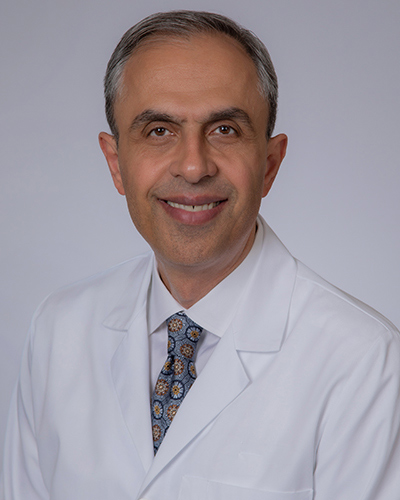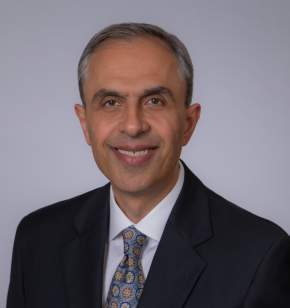A Closer Look at Brain Tumor Recurrence: Symptoms and Navigating New Challenges


Imagine the relief of a patient who has undergone successful brain tumor treatment. The symptoms that once plagued them, like severe headaches, vision disturbances, and neurological issues, have gradually faded, thanks to the advances in neurosurgery and therapy.
It's a story of triumph, a testament to the remarkable progress made in neurosurgery. Unfortunately, the journey may not always end with victory in the complex world of neurological diseases. A shadow looms over even the most successful brain tumor treatments: the possibility of recurrence.
In this blog post, we explore the intricate landscape of recurring brain tumors, shedding light on the chances, symptoms, and treatment methods that offer the best chances of recovery for patients dealing with recurrent brain tumors.
Chances of Brain Tumor Recurrence
Research shows that meningioma has a 24 - 32% chance of recurring within 15 years. However, some studies have indicated a recurrence rate of as low as 5% for resectable meningiomas within five years of the first treatment.
It is still important to remember that no two are the same, and the prognosis can vary for each case. The recurrence rate for a brain tumor can vary, depending on several factors, namely:
Tumor Type and Grade
The grade and type of tumor play a significant role in determining the chances of recurrence. Some tumors, known for their aggression, are more likely to return. High-grade tumors, such as glioblastomas, are notoriously resilient; recurrence rates tend to be higher with these malignancies. About 90% of patients reportedly experience a recurrence in the same area after initial treatment.
Why should you have your surgery with Dr. Cohen?
Dr. Cohen
- 7,500+ specialized surgeries performed by your chosen surgeon
- More personalized care
- Extensive experience = higher success rate and quicker recovery times
Major Health Centers
- No control over choosing the surgeon caring for you
- One-size-fits-all care
- Less specialization
For more reasons, please click here.
Extent of Initial Surgical Resection
The effectiveness of the initial surgical resection is crucial. In cases where a surgeon successfully removes the entire visible tumor in surgery, the likelihood of recurrence decreases significantly.
However, when tumor remnants are left behind due to the tumor's location, invasion into normal brain, or other complexities, the risk of recurrence rises. This is why surgeons must maximize tumor removal during the initial resection to minimize the chances of recurrence and improve patient outcomes.
Adjuvant Therapies
The use of adjuvant therapies, such as radiation and chemotherapy, can also impact the chances of recurrence. These treatments are often recommended to target any remaining tumor cells after surgery. Their success in preventing recurrence varies depending on the specific tumor and patient response.
Recognizing the Symptoms of a Recurrent Brain Tumor
Early detection of the recurrence of a brain tumor can lead to timely intervention and improved outcomes. Symptoms may manifest differently from the initial presentation and may vary from person to person. However, there are some warning signs to watch out for, such as:
- Recurring headaches, especially if they differ from previous headache patterns.
- Vision disturbances, such as blurred vision, double vision, or the development of blind spots.
- Recurring or new-onset seizures in a previously seizure-free patient.
- Subtle neurological symptoms like changes in cognitive function, personality, or motor and sensory deficits.
One of the most crucial aspects of managing brain tumor recurrence is regular follow-up visits with your medical team even when there are no symptoms. Routine check-ups are essential for catching any changes early on and determining the need for further treatment or intervention.
How Recurrent Brain Tumors Are Diagnosed and Monitored
When several symptoms warrant concern, your medical team will undertake a comprehensive evaluation to confirm or rule out brain tumor recurrence. This requires a thorough evaluation of your brain through various tests, the results of which will help guide your medical team in developing an appropriate treatment plan.
The following are some of the common methods used to diagnose a recurrent brain tumor:
- Imaging Techniques: Advanced imaging techniques like magnetic resonance imaging (MRI) and computed tomography (CT) scans are invaluable tools for detecting recurrent tumors. These scans provide detailed brain images, allowing doctors to visualize any abnormalities.
- Biopsy or Surgical Resection: In some cases, a biopsy or surgical resection may be necessary to confirm the presence of a recurrent tumor. A biopsy involves removing a small tissue sample for examination, while surgical resection aims to remove the tumor entirely.
- Clinical Assessment: Regular clinical assessments by your medical team are essential in diagnosing recurrent brain tumors and monitoring for metastasis (spread of tumor to other parts of the brain). This involves a thorough physical examination and a discussion of any new symptoms or changes in your health.
Treatment Options for Recurrent Brain Tumors
Once metastasis or the presence of a recurrent brain tumor is detected, your medical team will devise a comprehensive treatment plan tailored to your specific needs. This multidisciplinary approach gives you the highest chance of getting the best outcome from treatment.
The different treatment options for the recurrence of brain tumors include the following:
Surgical Intervention
Surgery remains a primary treatment option for recurrent brain tumors. Depending on the tumor's location, size, and type, surgical resection may involve removing as much of the tumor as possible (resection) or debulking procedures to reduce its size and alleviate symptoms.
Radiation Therapy
Radiation therapy, in the form of stereotactic radiosurgery or whole-brain radiation, is often used to target recurrent tumors. Stereotactic radiosurgery delivers precise, high-dose radiation to the tumor, while whole-brain radiation may be considered for multiple or widespread recurrences.
Chemotherapy and Targeted Therapies
Chemotherapy agents and targeted therapies are designed to target and disrupt the growth of tumor cells. The choice of treatment depends on the tumor type and its responsiveness to specific drugs. Ongoing research is continually expanding the options available in this realm.
Immunotherapy in Experimental Stages
Today, researchers are actively conducting clinical trials to evaluate the effectiveness of innovative immunotherapeutic techniques. Immunotherapy, harnessing the body's immune system to fight cancer, is an area of ongoing research for recurrent brain tumors.
Clinical trials are exploring the potential of immunotherapeutic approaches, offering hope for new treatment avenues. These trials could potentially revolutionize the management of brain tumors and may offer a higher chance of success in some cases.
Supportive Care and Palliative Options
In cases where a viable form of treatment may not be achievable, your treatment will then focus on treating your symptoms to provide you with the best quality of life. This includes pain management, symptom control, and emotional support to improve overall well-being.
Coping With the Recurrence of Brain Tumor
Coping with the news of a recurrent brain tumor can be an emotional and overwhelming journey for patients and their loved ones. It's a moment that brings forth a whirlwind of emotions, such as fear, uncertainty, and perhaps even a sense of hopelessness.
However, in the midst of this challenging chapter, remember that you are not alone. Aside from your loved ones, you may find comfort in being surrounded by others on the same journey as you through patient support groups and counselors.
Seek a Second Opinion From a Trusted Expert
In the face of the emotional hardship that a recurrent brain tumor diagnosis brings, it's essential to remember that knowledge and action can be your greatest allies. The fear and uncertainty accompanying such news can be paralyzing. However, early intervention and clarity in your diagnosis can pave the way for better outcomes.
When dealing with such a critical issue, it's prudent to seek multiple perspectives to ensure the most accurate assessment of your condition. Consult trusted experts like Dr. Aaron Cohen-Gadol for a second opinion.
With a distinguished career marked by over 7,000 complex brain surgeries and more than 530 neurosurgical publications, Dr. Cohen offers his expertise and dedication to patient care as an indispensable resource in your brain tumor journey.
Schedule a consultation and request a second opinion today!











